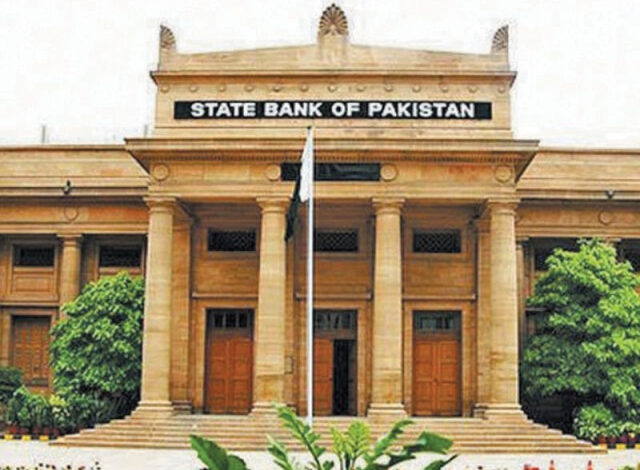Significant transactions remain cash-based: SBP

High-value transactions in Pakistan predominantly depend on paper-based and over-the-counter (OTC) techniques, reflecting concerns regarding trust or accessibility in digital high-value channels.
According to the State Bank of Pakistan’s latest Payment Systems Quarterly Review, 89% of retail payments in Pakistan are executed via digital channels, however they account for only 29% of the overall transaction value—Rs48 trillion out of Rs164 trillion.
In sharp contrast, OTC payments conducted via bank branches and branchless banking agents, albeit comprising only 11% by volume, represent a substantial 71% share in value.
This gap underscores a significant obstacle in the nation’s digital transition: high-value transactions remain predominantly dependent on cash and paper-based methods, indicating persistent issues of confidence, usability, or accessibility in digital platforms for substantial payments.
The SBP has published its Quarterly Payment Systems Review for Q3FY25, outlining developments in payment systems and highlighting significant alterations in the nation’s digital payment environment.
During Q3FY25, digital payments in the country experienced significant growth in both transaction volume and value. Retail payment volumes increased by 12% to 2,408 million transactions, while the total transaction value rose by 8% to Rs164 trillion. Digital channels comprised 89% of total retail transactions. Mobile app-based systems, encompassing mobile banking applications, branchless banking wallets, and e-money wallets, combined executed 1,686 million transactions valued at Rs27 trillion, indicating a 16% increase in volume and a 22% rise in value.
The quantity of individuals utilizing digital banking services experienced a consistent increase. The number of mobile banking app users rose to 22.6 million (an increase of 7%), e-money users expanded to 5.3 million (up by 12%), BB wallet users reached 68.5 million (up by 6%), and internet banking users totaled 14.1 million (up by 7%).
Internet banking, with a user base of 14.1 million, saw only minimal growth in transaction value, indicating restricted utilization beyond fundamental fund transfers. Simultaneously, contact centre and Interactive Voice Response (IVR)-based banking have nearly become obsolete, prompting worries regarding service accessibility for digitally marginalized groups.
The utilization of credit cards is restricted, comprising merely 4% of the 57.5 million cards in circulation.
E-commerce payments surged by 40% in volume to 213 million and by 34% in value to Rs258 billion relative to the preceding quarter. Digital wallets constituted the predominant segment of e-commerce payments, representing 94% (199.1 million) by volume, whereas card-based online payments comprised merely 6% (13.5 million). In-store purchases saw 140,861 merchants processing 99 million transactions (an increase of 12%) valued at Rs550 billion (an increase of 8%) over a network of 179,383 point-of-sale terminals. Moreover, retailers utilizing QR codes executed 21.7 million transactions amounting to Rs61 billion.
The payment systems run by the SBP, Raast (Instant Payment System) and RTGS (Real-time Gross Settlement System), have proved essential in expediting digital payments. Raast processed 371 million transactions valued at Rs8.5 trillion during the quarter, resulting in cumulative totals of 1.5 billion transactions and over Rs34 trillion in value since its inception. RTGS processed 1.5 million large-value transactions totaling Rs347 trillion.
Despite Raast experiencing significant growth in person-to-person (P2P) transfers, with transactions increasing to 368 million, its person-to-merchant (P2M) segment remains underutilized. Despite the onboarding of nearly 770,000 merchants, just 1.5 million P2M transactions valued at Rs4.5 billion were registered. This indicates insufficient uptake of QR and account-based payments at retail locations.
The transition to a digital economy is strongly endorsed by SBP’s strategic initiatives and the collaborative efforts of banks, fintechs, and payment service providers, according to SBP. As digital payments proliferate, the SBP is dedicated to advancing financial inclusion and enhancing payment efficiency for all parties involved.
Experts see the ongoing reliance on cash, inadequate credit infrastructure, geographic differences in digital access, and limited compatibility among platforms as significant obstacles to achieving comprehensive digital financial inclusion in Pakistan.